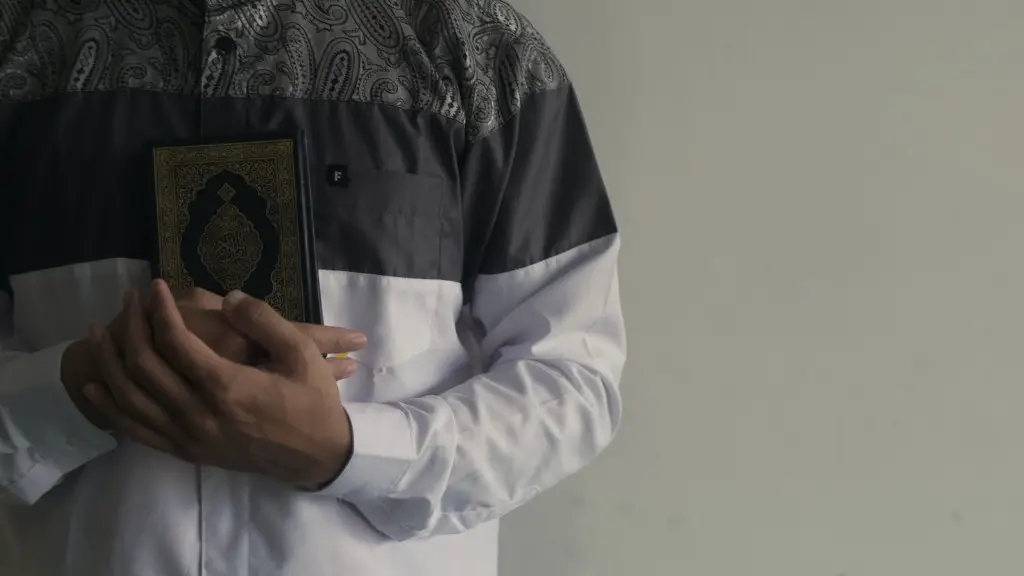First and foremost, it’s important to know that the word ‘Dawah’ in Islam actually means ‘invitation’. Therefore, giving Dawa is to invite people to the worship of Allah Almighty and to live according to His teachings as mentioned in the Holy Quran.
Dawah can also be given to non-Muslims in order to bring them into the fold of Islam. It is the responsibility of every Muslim to give Dawah as it is one of the obligatory duties in Islam. Prophet Muhammad (PBUH) said, “Convey (my teachings) to the people even if it is one verse.”
Giving Dawah is a Sunnah of the Prophet Muhammad (PBUH) and Muslims are encouraged to follow his footsteps. The Prophet (PBUH) was the best example of giving Dawah as he neverCompels anyone to accept Islam, but he always Invites people to know more about the truth of Islam and its beauty.
In Islam, Dawah refers to the act of inviting people to the religion. This can be done through face-to-face interactions, as well as through the use of media and other channels. Dawah is an important part of Islamic teachings, as it is believed that everyone has the right to learn about and experience the religion.
What is the purpose of Dawah?
The purpose of da’wah is to invite people to Islam and to teach them about the Qur’an and the sunnah of Muhammad. It is an important part of Islamic theology and helps to spread the message of Islam to the world.
Da’wah is a very important part of Islam, as it is the duty of every Muslim to spread the message of Allah to as many people as possible. There are many ways to go about doing this, such as through personal interactions, giving talks or lectures, writing articles or books, and so on. The most important thing is to have a good understanding of the religion oneself and to be able to convey its message in a clear and concise manner.
What are the methods of Dawah
It is important to remember that performing Da’wah involves both our words and actions. The command to call or invite the people to the worship of Rabbul-Alameen is given in the verse of the al-Quran (an-Nahl 16: 125); Call men to the path of your lord (O Muhammad) with wisdom and good exhortation.
We must always strive to present a good example to those around us, as our actions will speak louder than our words. Let us be conscious of this and make sure that we are living up to the standards that we are asking others to uphold.
Da’wah is an Arabic word meaning “invitation” or “calling.” In a religious context, it means “inviting” people to follow the teachings of Islam. The four foundations of Da’wah are: Ad-Da’wah ilaa Allah (inviting people to God), Ad-Daa’iyah (the proselytiser, the caller, the inviter, or the person who invites people to God), Al-Mad’uww [the invitee(s) or person(s) that is/are being invited to God, and Al-Ma’aad (the return or turning back to God).
How should we communicate while doing dawah?
The ability to deliver the message clearly, effectively and confidently is the most important element of communication skills that need to be applied in da’wah by the preacher. The ability to listen and respond actively is also important in order to understand the audience and their needs. The ability to deliver the message clearly with confidence is also important in order to gain the trust of the audience.
A da’i is someone who engages in Dawah, the act of inviting people to Islam.
What was the Prophet’s method of dawah?
The way of Da’wah that Prophet Muhammad (pbuh) used was based on the wisdom and guidance of Allah (swt). He always did what was right and just, and his words and actions were based on knowledge and understanding. He was a great leader and teacher, and his example is one that we should all follow.
Inviting others to the worship of Allah is an important duty that we must all fulfill. In doing so, we must remember that it is not only our words that carry weight, but our actions as well. People will be more receptive to the message of Islam if we live it out in our daily lives and show them that it is a religion of peace, love, and compassion.
When did dawah start
The Islamic Dawa Party’s Jihadi Wing was a militant group that operated in Iraq and Lebanon from 1979 to 2003. The group was led by Nouri al-Maliki and Abu Mahdi al-Muhandis. The Jihadi Wing was based in the Sadr Camp in Ahwaz, Iran.
There are three main sects within Islam: Sunni, Shia, and Alawite. Each sect has its own interpretation of Islam, which can lead to differences in observable practice. For example, Alawites do not worship in mosques or wear traditional hijab. Even within the three main sects, there can be vast differences in belief and practice.
What are the 5 main practices of Islam?
Islam is based on five pillars – faith, prayer, almsgiving, fasting and Pilgrimage. Profession of faith is the first and most important pillar. Muslims believe that there is only one God and that Muhammad is his messenger. Prayer is the second pillar. Muslims pray five times a day, facing Mecca. Almsgiving is the third pillar. Muslims are required to give a certain amount of their income to charity. Fasting is the fourth pillar. Muslims fast during the month of Ramadan. Pilgrimage is the fifth pillar. Muslims are required to make a pilgrimage to Mecca at least once in their lifetime.
The four schools of Sunni Islam are the Hanbali, Hanafi, Maliki, and Shafei. Each school is named after its founder, and each school has its own distinct teachings. Muslims in different parts of the world tend to follow one of these four schools. For example, Egypt is traditionally Maliki.
How should DUA be made
When making dua to Allah, it is important to follow the proper etiquette in order to show respect and humility. One should start off by reciting salawat on the Prophet Muhammad (peace be upon him), and then use Allah’s beautiful names to call upon Him. It is also important to praise Allah as He deserves, and to face the qiblah when making dua. Finally, one should have faith that their dua will be accepted and that Allah will respond in one way or another.
When making dua, or requesting something from Allah, there are some important things to keep in mind. First, it is best to say your duas out loud. This allows you to focus and really mean what you are saying. Second, begin by praising Allah. He is worthy of all praise and by starting with this, you are putting your dua in the proper perspective. Third, send prayers upon the Prophet Muhammad. He was the best of Allah’s creations and by sending prayers upon him, we are asking Allah to bless us as he blessed the Prophet. Fourth, mention the attributes of Allah. He is Most Merciful, Most Gracious, Most Merciful, Most Kind, etc. and by mentioning these things, we are reminding ourselves of who we are making our dua to. Fifth, use the ninety-nine names of Allah in a way that relates to your dua. For example, if you are asking for Allah’s help in studies, you could say “Ya All Mighty, Ya All Wise, please help me in my studies.” Sixth, ask for forgiveness. We are all sinners and by asking for forgiveness, we are admitting our shortcomings and asking Allah to help us overcome them. Seventh, mention good deeds you have done for
How many Dua are in Islam?
The 40 Rabbana duas of the Qur’an are some of the best Quranic duas a person can learn, memorize, and recite. They are collectively known as the 40 Rabbana duas and are a great way to strengthen one’s faith and relationship with Allah.
There is no god but God, and Muhammad is the Messenger of God. This is the central belief of Islam, and the Five Pillars are the core practices that support and uphold this belief. Prayer (salat), alms giving (zakat), fasting (sawm), and pilgrimage (hajj) are all essential components of Islam that serve to strengthen the faith of believers and bring them closer to God. Each of these pillars is a fundamental part of Muslim life, and they offer a very tangible way for believers to express their commitment to their faith.
Final Words
There is no one answer to this question as it is a complex and multi-faceted topic. In general, dawah refers to the Islamic concept of inviting others to learn about and understand the religion. This can be done through individual interactions and discussions, or on a larger scale through educational programs and public outreach initiatives. The ultimate goal of dawah is to spread the message of Islam and to build a stronger global Muslim community.
There are many ways to answer this question, but ultimately, dawah in Islam is about inviting others to learn about and understand the religion. It is about sharing the message of Islam with the hope that others will see the beauty in the faith and be drawn to it. There are many ways to go about doing dawah, and it is an important part of Muslim life.



